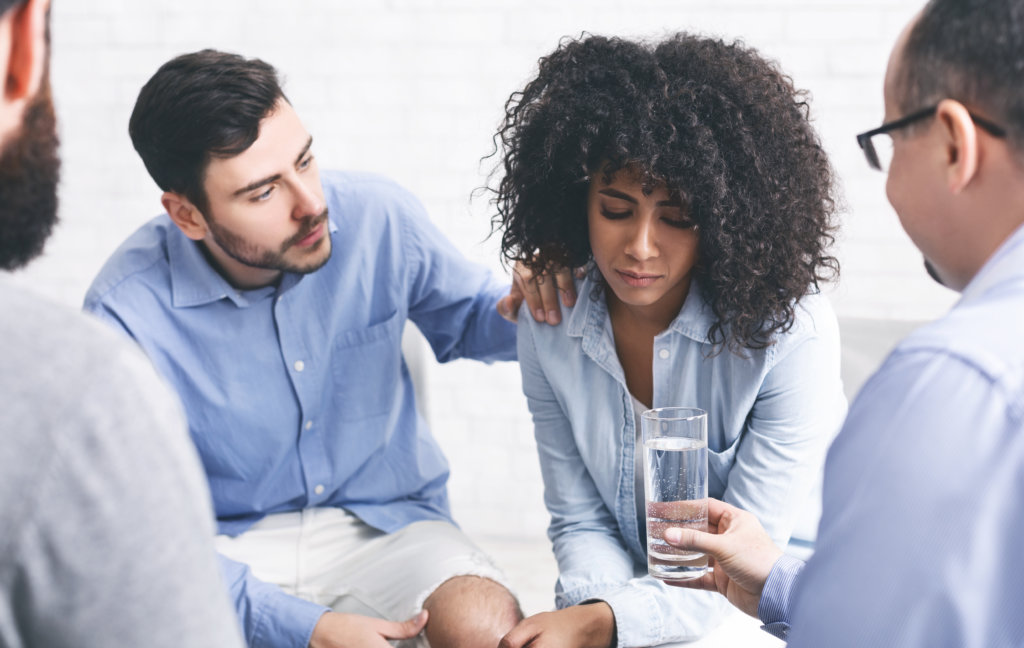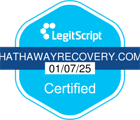Parents for addiction treatment and healing can make a big difference.
If your loved one is struggling with drug or alcohol abuse, it’s important to know the signs of addiction and how to help an addict. Parents are not necessarily skilled in knowing what to say or do when our LOVED one is using substances. Then how to help a family member with addiction?
A proper start in helping people with addiction begins with what not to do. When you face a crisis, it is widespread to want to blame somebody. While you blame someone, it does not facilitate a solution; it only helps you reduce your own sense of responsibility for this problem. Unfortunately, when it comes to addiction, blame often exacerbates the situation.
Call Hathaway Recovery Center today CALL US NOW: (909) 971-3333
Don’t we all wish there was a recipe that tells us how to help an addict get sober?

Still, addiction and parenting are things that can influence each other and make the situation better. Your words can empower your loved ones.
You may wonder how to help my husband with addiction or how to help my drug addict son or daughter? What should I say that will make an impact?
KNOW WHAT YOU ARE TALKING ABOUT
It’s not enough to tell your loved one that you think she or he needs help. It is more effective and beneficial when you have knowledge about addiction and are educated on addiction treatment options available for your family member. It might seem like a very hard task, but it is fairly simple. Here are some first steps you can take to gather information about addiction treatment options:
- Go online and take a look at information that is provided on our website or by reputable resources, such as National Institute on Drug Abuse (NIDA), and Disease Control and Prevention (CDC)
- Try to attend AI-Anon meetings or similar support groups for connecting with others who seek help for families of drug addicts. There are many support groups for family members of addicts. They have been in your shoes and can offer knowledge and guidance.
- Don’t be ashamed to call and speak to the treatment centers and rehabs near your to learn about their treatment and recovery programs.
- Read books for families of drug addicts.
When you obtain an education on substance abuse and addiction treatment options, you allow yourself the ability to affect real change in the life of your loved one. You may feel you are walking on eggshells when your child is in the midst of their substance use.
Fight FIGHT FIGHT. Never give up because you are the person who can help to stop this. Call for help, never hide the issue.
OFFER ASSISTANCE THROUGH EMPATHY
Addiction can be deeply persistent and invasive, causing people to become emotionally wrecked, especially when it comes to their family members with addiction. Sometimes intensive emotions like frustration, anger, resentment, and disappointment can be so powerful that people don’t feel like there is any hope for everything to get better. Remember, no matter how active and painful an addiction can be, there are always many options and things you can do to help your loved one to get effective and appropriate treatment.

When you truly want to help someone you love, you will have to adopt a position of empathy. Addiction is a family disease and it can happen to anyone. If they could fight addiction on their own, they would. But a lot of people are afraid to admit that they need to overcome an addiction.
People struggling with substance abuse are frightened and ashamed. They do things that are out of their character, but they feel powerless to stop. An addiction may blank family and friends. People with addiction often feel alone and isolated, afraid to reach out for help because they think:
- The life will be over
- Their family and loved ones will leave them
- They will lose their job
You will never know the horror of being addicted, or of wanting to stop and not being able to. Imagine something so powerful that it uses you. It’s like that for those of us who are susceptible to addiction. Please know addiction is a highly treatable illness. The key to recovery is breaking the code of silence by reaching out for help and connecting with safe, supportive people.
When you can understand the pain of addiction, you can see how important it is to be educated on the subject and approach your family member in a delicate way, with love. They will see you not blaming them and will have plenty of support for addiction recovery.
If you or someone you know needs help, please call this confidential support line for assistance.
Call Hathaway Recovery Center today CALL US NOW: (909) 971-3333
If you will not fight, no one will, you can change the road. Each day might be the last one, addiction doesn’t sleep, doesn’t have age, doesn’t have gender or time. Users don’t know what they are buying to satisfy their addiction; they don’t know what their drug dealer mixed with drugs — any day, any minute, they could be taking a fatal dose without knowing.
CDC recently published an interactive visualization tool with preliminary weekly estimates of overdose deaths. These data suggest that overdose deaths remained elevated well into the fall before declining toward the pandemic baseline near the start of 2021. The final 2020 total in the United States could exceed 90,000 overdose deaths, compared to 70,630 in 2019. That would not only be the highest annual number on record but the largest single-year percentage increase in the past 20 years.
Having a family member with an addiction problem is painful, confusing, and overwhelming. The situation is not hopeless, though. Treatment facilities can help people with substance abuse problems and the families who love them.
If you want to know how to get someone into a rehabilitation center, Hathaway Recovery can help you. It provides well-rounded, comprehensive addiction treatment programs. If your loved one wants to stop using drugs and alcohol, call Hathaway Recovery. You don’t have to walk this path alone!
Hathaway Recovery Luxury Treatment Center

Hathaway Recovery Drug & Alcohol Treatment Center
Email: management@hathawayrecovery.com
1042 East Belmont Abbey Lane, Claremont, CA 91711







